Courtesy is not dead—it has merely taken refuge in Great Britain. |
|
FRIDAY: My Book World | Charlotte Brontë's Jane Eyre
0 Comments
FRIDAY: My Book World | Charlotte Brontë's Jane Eyre
My Book World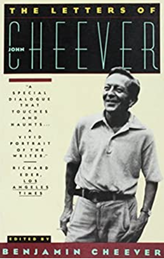 Cheever, Benjamin, Ed. The Letters of John Cheever. New York: Simon, 1988. This collection of letters from the 1930s to 1982 is as much about the editor, John Cheever’s eldest son, as it is about the senior writer. So many times in reading a compendium of letters, one is left alone to solve certain puzzles the letters may contain. For most letters Benjamin Cheever glosses events, dates, but most important, personalities, and by doing so he allows readers a deeper view into his father’s letters, his father’s life, the life of their family: John Cheever’s wife, Mary; daughter Susan, Benjamin, and a second son Fred (born Federico in Italy). Having read Cheever’s journals some years ago, I again encountered his wicked wit, in which he slices humanity a new asshole but also a humane man who loves that very flawed humanity and is kind enough to portray his characters that way. For the wicked sense of humor: “About a month ago Mary took a job teaching English at Sarah Lawrence two days a week and so she journeys out to Bronxville on Tuesday and Fridays and comes home with a briefcase full of themes written by young ladies named Nooky and Pussy” (124). Or this, with a scintilla of rage: “I got back to work on the book about a month ago, but was dealt some crushing financial blows three weeks later and now I’m back in the short story business. I want to write short stories like I want to fuck a chicken” (125). And a sweet cat story: “The cat, after your leaving him, seemed not certain of his character or his place and we changed his name to Delmore which immediately made him more vivid. The first sign of his vividness came when he dumped a load in a Kleenex box while I was suffering from a cold. During a paroxysm of sneezing I grabbed for some kleenex [sic]. I shall not overlook my own failures in this tale but when I got the cat shit off my face and the ceiling I took Delmore to the kitchen door and drop-kicked him into the clothesyard” (235). But ultimately, as I said, Cheever loves humanity and declares as much by way of a Time magazine interview chronicling his career: “My sense of literature is a sense of giving not diminishment. I know almost no pleasure greater than having a piece of fiction draw together disparate incidents so that they relate to one another and confirm that feeling that life itself is a creative process, that one thing is put purposefully upon another, that what is lost in one encounter is replenished in the next, and the we possess some power to make sense of what takes place” (240). Now for the sex part of this profile: Editor Ben, eldest son to Cheever, discovers that his father is not bisexually bicurious in a furtive, shameful sort of way but has had sexual-emotional relationships with many different men over his lifetime. Cheever’s letters attest to having done the deed with (grad student of Cheever’s) Allan Gurganus (about his son’s age) and photographer Walker Evans about whom he tells this story: “When I was twenty-one Walker Evans invited me to spend the night at his apartment. I said yes. I dropped my clothes (Brooks). He hung his (also Brooks) neatly in a closet. When I asked him how to do it he seemed rather put off. He had an enormous cock that showed only the most fleeting signs of life. I was ravening. I came all over the sheets, the Le Corbusier chair, the Matisse Lithograph and hit him under the chin. I gave up at around three, dressed and spent the rest of the night on a park bench near the river” (304). I must say that I admire John Cheever’s zest for life, an enthusiasm he did not relinquish until the day he died. And even then? NEXT FRIDAY: My Book World | Charlotte Brontë's Jane Eyre
TOMORROW: My Book World | The Letters of John Cheever
FRIDAY: My Book World | The Letters of John Cheever
FRIDAY: My Book World | The Letters of John Cheever
My Book World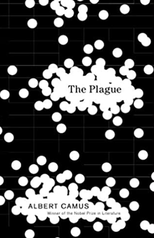 Camus, Albert. The Plague. Translated by Stuart Gilbert. New York: Vintage, 1991 (1948). I read this book, in part, to see what light, if any, it might shed on the world’s 2020-2021 Covid pandemic. I found some interesting parallels. The city of Oran, Algiers, 194_ of Part One seems to echo our country’s actions concerning a local epidemic, the first signal of which is the estimated death of 40,000 rats: lack of clarity about what the disease is and what needs to be done. In Part Two, the gates of Oran close: “One of the most striking consequences of the closing of the gates was, in fact, this sudden deprivation befalling people who were completely unprepared for it” (67). The natural impulse seems to be to shut out the rest of the world. People, indeed, do not know what is happening. Go to work or not? Keep my children out of school? Oh, the schools have been closed. “The Prefect’s riposte to criticisms echoed by the press—Could not the regulations be modified and made less stringent?—was somewhat unexpected” (78). In 2020, we demonstrate similar behavior: “At first the fact of being cut off from the outside world was accepted with a more or less good grace, much as people would have put up with any other temporary inconvenience that interfered with only a few of their habits. But, now they had abruptly become aware that they were undergoing a sort of incarceration under that blue dome of sky, already beginning to sizzle in the fires of summer, they had a vague sensation that their whole lives were threatened by the present turn of events, and in the evening, when the cooler air revived their energy, this feeling of being locked in like criminals prompted them sometimes to foolhardy acts” (100). Indeed. Partying at crowded bars and restaurants? Attending large political gatherings? In Oran, the number of deaths seem to increase exponentially day by day. There is conflict about how to handle their situation: “Cottard stared at him in a puzzled manner, and Tarrou went on to say that there were far too many slackers, that their plague was everybody’s business, and everyone should do his duty. For instance, any able-bodied man was welcome in the sanitary squads” (157). Sounds similar to 2020: Just wear the damn mask. Or, You can’t tell me what to do, you’re infringing on my freedom. By Part III the people of Oran, Algeria realize that the plague has swallowed up “everything and everyone.” There are no longer individual destinies, only a collective destiny, burying the dead, recycling coffins because enough new ones cannot be manufactured fast enough. Cemeteries are outgrown as it were. In 2020, CNN and MSNBC mount graphics each day of the number of Covid cases, the number of deaths. People of Oran become apathetic: Que sera, sera. If I die I die. Sound familiar in 2020? Part IV of the novel depicts the exhaustion—physical, mental, and emotional—that the people of Oran are now experiencing after months of trauma. “Whenever any of them spoke through the mask, the muslin bulged and grew moist over the lips. This gave a sort of unreality to the conversation; it was like a colloquy of statues” (209). No wonder everyone becomes sick of masks! We can’t always understand one another, can’t see other’s expressions as to what they are thinking. Though protected by the mask, we are dehumanized by it as well. Part IV is highlighted with a touching moment between Dr. Rieux and his friend and patient, a Father Paneloux, after a child dies by way of an excruciating but tender description by Camus. You know more death is coming. Yes, the priest, too, dies. It is in Part IV that the plague becomes a larger thing, a metaphor for the decay potentially inherent in all humans. Provided for readers in Part V is a sad denouement in which the plague whimpers to an end, but not before the good doctor who has worked tirelessly experiences the loss of his wife (who is caught in another town throughout the entire epidemic) as well as a close friend. Dr. Rieux ends the novel’s narrative with these thoughts: “And, indeed, as he listened to the cries of joy rising from the town, Rieux remembered that such joy is always imperiled. He knew what those jubilant crowds did not know but could have learned from books: that the plague bacillus never dies or disappears for good; that it can lie dormant for years and years in furniture and linen-chests; that it bides its time in bedrooms, cellars, trunks, and bookshelves; and that perhaps the day would come when, for the bane and the enlightening of men, it would rouse up its rats again and send them forth to die in a happy city” (308). Whoa! What? you say. We could face more pandemics in the future? Simply, yes, if the rats shop with us. NEXT FRIDAY: My Book World | The Letters of John Cheever
TOMORROW: My Book World | Albert Camus's The Plague
FRIDAY: My Book World | Albert Camus's The Plague
FRIDAY: My Book World | Albert Camus's The Plague
Actually, I am going nowhere for two weeks. Just taking it easy on a little staycation (all we need after 14 months, right). Hopefully, next autumn? Before I sign off, however, I would like to share two bits of good news.
First, my memoir, That I Do Not Lose You: One's Man's Family Roots, recently earned one of six finalist positions for the William Faulkner - William Wisdom award in nonfiction for 2020. It is sponsored by the Pirates Alley Faulkner Society of New Orleans. I'm hoping this award will help me to place the manuscript with a publisher some time in the near future. Wish me well! Next, as an amateur photographer, I like to enter photos in exhibitions. Recently two were accepted for one called Monuments of the World - 11 X 14 Works on Paper, sponsored by the Office of International Affairs at Texas Tech University. Up until mid-July, 2021, the show can be viewed in the spacious gallery found at the International Cultural Center. M-F, 8-5. If you wish to take a look at a handsome virtual tour, click here to view digital versions of monuments found around the world. NEXT POST: June 16, 2021 | Hope to see you then. |
AUTHOR
Richard Jespers is a writer living in Lubbock, Texas, USA. See my profile at Author Central:
http://amazon.com/author/rjespers Archives
June 2024
Categories
All
Blogroll
Websites
|
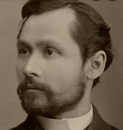
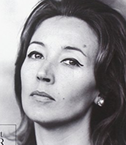


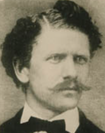
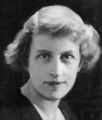









 RSS Feed
RSS Feed